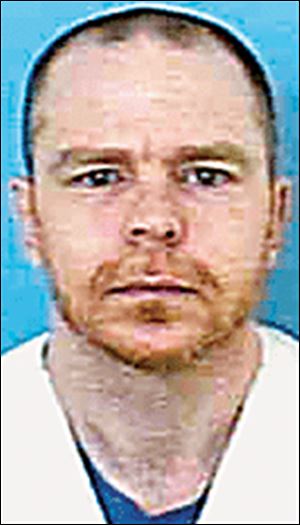
Court hears Ohio death-row case
4/20/2005
Stumpf
WASHINGTON - A lawyer for Ohio death-row inmate John David Stumpf told the U.S. Supreme Court that prosecutors violated his client's constitutional rights by arguing in different courts that both Stumpf and another man pulled the trigger in the shooting death of a robbery victim.
Alan Freedman, who was appointed by the Supreme Court to represent Stumpf, told the justices that prosecutors at various times suggested that both Stumpf and Clyde Daniel Wesley, his accomplice, shot to death Mary Jane Stout of Guernsey County, Ohio, in 1984.
Ohio State Solicitor Douglas Cole argued that the panel of judges who originally sentenced Stumpf to death - after Stumpf pleaded guilty to the aggravated murder of Mrs. Stout - reaffirmed the sentence even after the state suggested at Wesley's trial that Wesley was the triggerman. Wesley also was convicted of murder but was not sentenced to death.
The fact that Stumpf and Wesley could have been charged with murder even if they had not pulled the trigger made headway with several justices.
"●'Due process' doesn't mean perfect," Justice Antonin Scalia said, adding that the issue was whether the sentencing bodies in the Stumpf and Wesley trials were given adequate evidence.
But other justices seemed troubled by the fact that prosecutors told a panel of sentencing judges that Stumpf was the shooter but offered a different scenario at Wesley's trial, putting on the stand a cellmate of Wesley's who said Wesley had confessed to shooting Mrs. Stout.
"Why shouldn't the state have to fish or cut bait and say we think he's the triggerman or we don't think he's the triggerman?" Justice David Souter asked Mr. Cole.
Stumpf's hope for having his death sentence set aside could depend on whether the Supreme Court decides to separate the issue of his guilty plea from the death sentence that followed - something the 6th U.S. Circuit Court of Appeals did not do in vacating both the conviction and the sentence.
"The concern that I have is not guilt or innocence as such; It's with the sentencing," Justice Souter said. "As the record stands now, the state made two arguments, that Stumpf was the triggerman and that Wesley was the triggerman. The question is this: Can the state pursue two inconsistent arguments knowing that one leads to a false result?"
The justices are expected to rule by the end of June.
Contact Mike McGough at:
mmcgoughnationalpress.com
or 202-662-7070.